How to get the best mortgage rates
A mortgage is a serious financial commitment so check out how to get the best mortgage rates first
Knowing how to get the best mortgage rates is important, especially as costs continue to rise all around. The Bank of England has increased interest rates as it tries to curb inflation. In response, mortgage lenders began to hike the cost of new deals. Homeowners on variable rate mortgages will be watching their monthly payments climb up and up.
Switching to a cheap mortgage could save you thousands of pounds a year, particularly if your current deal is coming to an end. Otherwise, you’ll soon be paying your lender’s standard – and probably higher – variable rate.
David Hollingworth, associate director of broker L&C Mortgages, says: ‘Although mortgage rates have been rising since the final quarter of last year it’s important to remember that in historical terms current mortgage rates are still extraordinarily low, even if they don’t look quite as sharp as the rock bottom rates we saw last year.
‘It’s certainly the case that the best mortgage rates on the market will beat a standard variable rate so it’s as important as ever to shop around to get the best overall value. Switching to one of the keen fixed rate deals on offer now will also protect against further rate rises.’
Mortgage lenders are using interest rates to manage their demand. What that means is that if they come out with a deal with a great mortgage rate, it probably won’t hang around for long. Before they get too swamped with business, they withdraw the rate again. And some banks and building societies are quite picky about who gets their best rates. But, whatever your situation, there are steps you can take to improve your chances of getting a great deal.
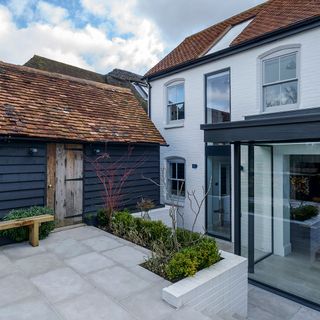
How do I find the best mortgage rate?
If you’re thinking of buying a house or remortgaging, a good starting point is to get a feel for the mortgage rates on offer. That means looking at some mortgage brokers’ websites and at price comparison sites, such as our sister brand GoCompare, Moneysupermarket and Comparethemarket. Check out what your own mortgage lender or bank is offering as well, as some have better deals for existing borrowers or customers who bank with them.
High-street lenders can be competitive, but they’re not the only option if you’re looking for a mortgage. Small building societies can sometimes be more understanding and flexible if your situation isn’t straightforward, such as if you’ve recently swapped jobs or are self-employed. And there are some digital and mobile-only banks that also offer mortgages.
To get the very best rates, these are your main options:
1. Use a traditional mortgage broker
A mortgage broker is qualified to give you advice on the best mortgage rates. They’ll get to know your circumstances and find out what your plans are for the future before recommending the best deal.
They operate independently from banks and building societies. But not all brokers search the entire mortgage market. Some only recommend mortgage deals from a limited selection of lenders. If you’re using a broker, ask them how they operate before going ahead.
Mortgage brokers will have access to exclusive mortgage deals that you wouldn’t be able to ask your bank for. There are also some lenders that only deal with mortgage brokers because they don’t have any branches.
That said, from time-to-time mortgage lenders keep back their best mortgage deals and offer them to borrowers directly, so it is worth doing some shopping around via a price comparison site.
Using a broker could add an extra cost to your mortgage bill. All mortgage brokers receive a payment from the mortgage lender they recommend, but some also charge a fee for their services on top. This can be up to 1% of your mortgage balance but often it is a flat fee.
2. Find an online mortgage brokers
If you prefer to sort out your finances over the internet, you can use an online mortgage broker such as Trussle, Habito or Mojo Mortgages instead. The face-to-face meeting is replaced with an online application form and once you’ve submitted your personal details you’ll receive a mortgage recommendation.
Both Trussle and Habito use computer algorithms to search through thousands of deals for you, while also providing a human adviser to talk through recommendations. Mojo uses a human adviser to search more than 10,000 rates.
Online brokers are quick and convenient. You apply for a mortgage at a time that suits you and you still get to speak to a real-life adviser once you’ve received your recommendation. You don’t have to wait for paperwork to be posted and you can track your mortgage application online. But without an adviser to help you fill out the application, you could make a mistake which may go undetected for weeks and eventually lead to a rejection or delays.
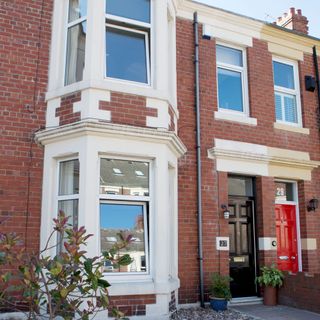
3. Renegotiate with your current lender
If you’re looking for a new mortgage deal without any extra borrowing, speaking to your current mortgage lender is a quick way to switch rates. Your earnings and credit report will not be rechecked if you don’t increase your mortgage balance or change the term.
You’ll receive a letter from your lender three to six months before your current rate expires telling you the new deals the bank can offer you. When your existing mortgage deal ends, you’ll then be automatically transferred to the one you’ve chosen. Some lenders will even let you switch before your deal has expired if the new deal is cheaper.
But be warned: just because your bank is being helpful, it doesn’t mean it is offering you the best mortgage deals on the market. You’re also not receiving personalised mortgage advice.
4. Use price comparison websites
Price comparison websites are a good place to start your search by giving you an overview of the best rates on the market Popular comparison websites include; GoCompare, Compare The Market and Moneysupermarket.com.
David Hollingworth says: ‘Mortgage rates have been moving extremely quickly. Best buy tables on price comparison websites are an easy way to keep tabs on changes to the best mortgage deals available and will give you a quick overview of the lowest rates on the market.’
The lowest interest rate does not make it the cheapest mortgage deal, however. Look at the mortgage fees that accompany the deal and check to see if it comes with a free valuation or legal work.
Check the Annual Percentage Rate of Charge (APRC) to compare the truest cost of mortgage deals.
‘There are thousands of mortgage deals and lots of them look similar but can have different criteria requirements,’ adds David. ‘So it’s important to check that you meet the lender’s eligibility criteria as well as focusing on the cheapest mortgage rates.’
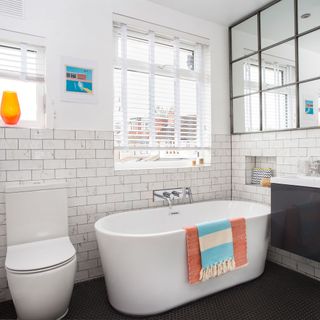
How to prepare your finances for a new mortgage
Once you’ve got an idea of what’s on offer, start your preparation so your finances are in the best shape when you actually apply for your mortgage. Don’t leave this until the last minute. Check your credit rating a few months before by applying for a copy of your credit report so you can take steps to improve your credit score for a mortgage.
You should do this at the three main credit reference agencies; Equifax, Experian and TransUnion, as well as a credit broker like Credit Karma. You can apply for a copy of your report online. It will cost £2 with the other two agencies every time you apply, but you may be able to get your report for free through the regular promotions they run.
The reason why it makes sense to apply for your credit report in advance is that if there’s a mistake, you have time to get it corrected. And if your credit report shows late or missed payments, you can add what’s called a ‘notice of correction’. This is a short explanation of why you missed the payment. A mortgage lender would have to look at this explanation before deciding whether or not to lend to you.
If you’re not on the electoral register, sign up for it. Mortgage lenders use it to verify that you are who you say you are, and it will affect your credit rating if you’re not registered. You can do this at Register to Vote.
If you’re normally overdrawn, reduce or pay off your overdraft. Mortgage lenders will be nervous if your overdraft is increasing month by month or is sizable. You don’t have to be debt free, but banks will take any debt you already have (such as loans and credit cards) into account when working out how much to lend.
Work out how much you can borrow
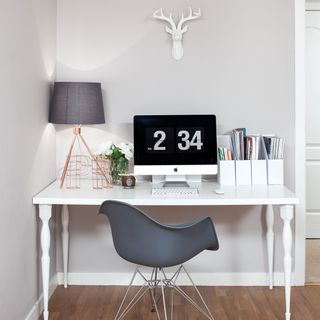
Although mortgage rates for particular deals vary from lender to lender, they all tend to charge a higher rate the more you want to borrow in relation to the value of the property (called the Loan To Value, or LTV).
Mortgage lenders tend to work to similar thresholds, with mortgage rates typically rising for every extra five per cent you want to borrow. So, if you can keep your borrowing at, say, 80 per cent rather than 85 per cent, your mortgage rate should be a bit cheaper.
Use our calculator below to see how much you might be able to borrow based on your salary.
What type of mortgage rate should I go for?
There are lots of different types of mortgage rates, and it’s not always clear exactly how they work.
- Fixed rates are the most straightforward – they do what they say on the tin. The mortgage rate can’t go up or down during the term of the fix, which is typically between two and ten years. They’re great if you need certainty but they normally come with an early repayment charge if you need to pay the mortgage off before the term ends. It’s not a problem if you’re moving home and you can take your mortgage with you.
- Tracker or variable rates track the Bank of England base interest rate. When the Bank of England rate goes down, the tracker rate immediately falls by the same amount and vice versa when the rate rises. Different mortgage lenders will charge a different premium on their tracker rate. This is the difference between the Bank of England base rate and the rate you’re charged.
- Discount mortgages are a different type of variable rate. Here, instead of paying a premium above the Bank of England Rate, you get a discount off the lender’s standard variable rate (SVR). Unlike tracker rates, mortgage lenders don’t have to increase or reduce the discount rate when the Bank of England changes its interest rate. If they do, they don’t have to change the discount rate by the same amount.
When your mortgage rate runs out, you’ll go onto your lender’s standard variable rate unless you switch to another deal. Always check what the Standard Variable Rate is before you choose a mortgage deal. They vary by over two per cent between lenders and, if your circumstances were to change and you couldn’t qualify for a great rate, you want to know you’re not being hammered by the SVR.
If you’re confident in finding the best deal, you can sort it out yourself. Bear in mind that finding the cheapest rate is easy, but finding the best mortgage is less straightforward.
What is an overall cost for comparison?
When you’re looking at mortgage deals, you’ll see the phrase ‘overall cost for comparison’ or APRC (annual percentage rate of change) next to an interest rate. This is a standardised figure, provided by the lender, to show the overall interest rate for the duration of the deal. It includes the cost of the mortgage, plus any fees and charges that you must pay.
It’s a useful figure because it helps you compare deals that may look similar on the surface (e.g. the same headline rate) but work out rather differently when all the costs are taken into account.
What is a good interest rate for a mortgage?
Two and a half per cent is a decent benchmark to be aiming for, according to Peter Gettins of broker L&C Mortgages.
He says that there are deals that can offer rates below this on a range of products, from five-year fixed rates (if you want to borrow up to 75 per cent of the property’s value) to two-year fixes at 90 per cent loan-to-value.
You can even get some ten-year fixed rates at just under two and a half per cent.
Can you negotiate a better rate for a mortgage?
You can’t haggle the rate down like you can with home insurance. But if you haven’t reviewed your mortgage deal in a while, and especially if you’re on the standard variable rate, there’s a very good chance you can get something better, says London and Country’s Peter Gettins.
‘With rates moving quickly it’s even more important to start shopping around sooner rather than later,’ adds Peter. ‘Waiting until the end of a deal could result in a spell on an expensive standard variable rate. It’s always sensible to start looking at least three months before your current deal ends. Many lenders will allow you to lock into a new deal as much as six months before.’
Some lenders offer better rates to their existing customers and may let you switch to your new rate early, penalty free, if it’s cheaper.
Reserving the best rates
Mortgage rates change rapidly depending on the economy. When you apply for a new deal, you are reserving that rate. So even if the lender withdraws it before you have completed the switch the rate is still yours.
Once you’ve been approved for the mortgage you’ll receive a formal mortgage offer which is valid for between three to six months so you can hang on to your rate long after it has been withdrawn.
What’s the best time period for a fixed-rate mortgage?
How long your fixed rate mortgage lasts for depends entirely on your own circumstances and budget.
If you’re planning to stay in your home for a long time to raise a family and be near good schools, borrowers may prefer to lock in to a five or ten-year fixed rate. A young person who hasn’t decided where they want to put down roots may prefer the flexibility of a two-year fixed rate.
If you compare a two-year fixed rate and a five-year one, with the same fees and charges, the fees on the two-year mortgage will work out more expensive on a ‘per year’ basis. It sounds obvious, but it’s easy to focus on the headline interest rate, which will be lower on a two-year fixed rate deal.
While there are lots of two and five-year fixed rate mortgages, there aren’t so many mortgage lenders offering them for ten years or more.
Check the early repayment charge, especially if you’re choosing a longer fixed rate. It’s typically a percentage that reduces over time and it varies widely between lenders – and fixed rate mortgage deals.
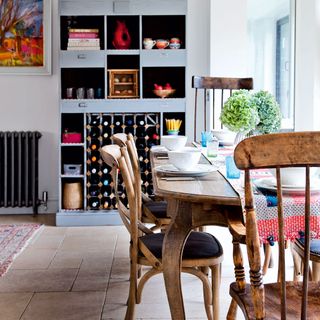
Will mortgage rates go up or down?
It’s always hard to predict whether mortgage rates will rise or fall and with the current political and economical situation, it’s even harder.
But Kalpana Fitzpatrick, editor of our sister website The Money Edit, thinks rates are unlikely to fall with interest rates predicted to rise further in the coming months.
“Nothing is certain until it happens, but forecasts suggest that interest rates could hit 4% next year and continue to sit at that level until 2024.
“We have already seen interest rates creep up and are back at rates not seen since 2009. Ultimately, high interest rates mean higher rates on mortgages; mortgage lenders waste no time in passing increases onto those on standard variable rate or tracker mortgages.
“If you are on a variable rate mortgage, now could be a good time to think about fixing and locking in a lower rate before further increases.”
Fees and mortgage rates
It’s not just the mortgage rate itself you need to take into account, but the fees charged by the lender. Most lenders charge an arrangement fee (which is often around £1,000 – or even more). There may be a booking fee, although these are less common. Some lenders offer two versions of their mortgage deals; one with a fee and one that’s fee free. If you have a smaller mortgage, it’s worth comparing the fee-free option.
You’ll normally have to pay a valuation fee and legal fees as well, although the lender may make a contribution towards these.
What are exit fees?
In most cases, you’re tied into your current mortgage deal for a set period usually matching the term of your interest rate. For example, you would be tied into your two-year fixed rate for two years. If you want to leave before the end of the two years you must pay an exit fee also known as an early repayment charge.
The charge is calculated as a percentage of your mortgage balance ranging from 5% to 1% depending on the deal. If you can get a big enough saving by switching mortgage, it may be worth paying these fees, but do your sums carefully – and consider waiting until your current deal ends.
With a little preparation and either the help of a professional mortgage broker, or some research, you should be able to find a great mortgage deal.
Get the Ideal Home Newsletter
Sign up to our newsletter for style and decor inspiration, house makeovers, project advice and more.
Samantha Partington is a personal finance journalist specialising in mortgages and the property market.
Over the past nine years, Samantha has worked for the Daily Mail, trade website Mortgage Solutions and business title Property Week. She regularly writes for national money pages including Money Mail and Sun Money and supports prop tech firms with content writing.
-
 B&M has nailed 2025's breakout garden furniture trend - it's one of the most affordable and stylish I've seen
B&M has nailed 2025's breakout garden furniture trend - it's one of the most affordable and stylish I've seenGet the luxe look for less
By Kezia Reynolds
-
 This expert-recommended £5 M&S buy will stop yellow stains on your pillows – shoppers are raving about the quality for the price
This expert-recommended £5 M&S buy will stop yellow stains on your pillows – shoppers are raving about the quality for the priceThis bestselling M&S buy solves a common bedding issue, and it's only £5
By Amy Lockwood
-
 Are cylinder vacuums having a comeback? Miele’s newest release has me questioning why they even left in the first place
Are cylinder vacuums having a comeback? Miele’s newest release has me questioning why they even left in the first placeI put Miele's brand new vacuum through its paces, and it packs some serious power
By Lauren Bradbury
-
 You can claim back over £300 a year from HMRC if you work from home - here’s how to check if you’re eligible
You can claim back over £300 a year from HMRC if you work from home - here’s how to check if you’re eligibleWhen it comes to saving, every little helps
By Kezia Reynolds
-
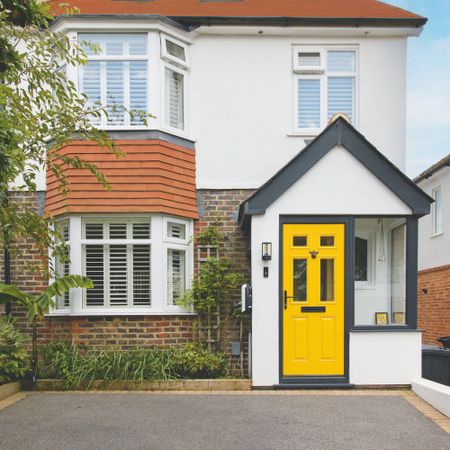 Experts have revealed the best day to renew your home insurance policy - you’ll want to do it sooner rather than later
Experts have revealed the best day to renew your home insurance policy - you’ll want to do it sooner rather than laterDon't leave this task at the bottom of your to do list
By Kezia Reynolds
-
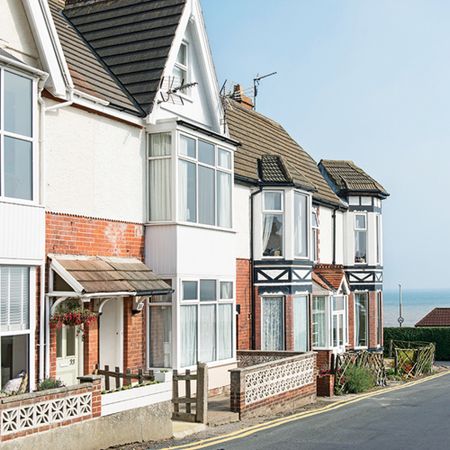 Is a variable rate mortgage ever a good idea? Experts weigh in
Is a variable rate mortgage ever a good idea? Experts weigh inOur money expert explains what a variable rate mortgage is, who they can be good for, and the pros and cons of this kind of mortgage
By Samantha Partington
-
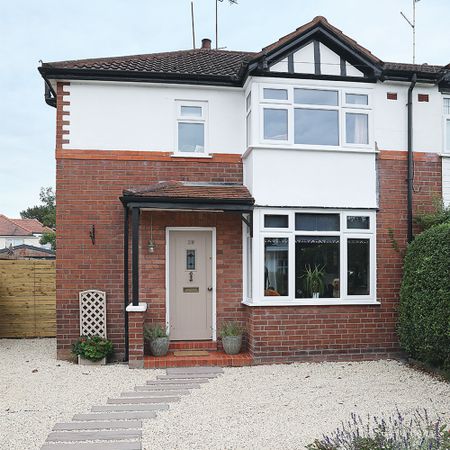 I’m a first-time buyer, what are my chances of getting a mortgage right now?
I’m a first-time buyer, what are my chances of getting a mortgage right now?And what you can do to increase your odds
By Rachel Wait
-
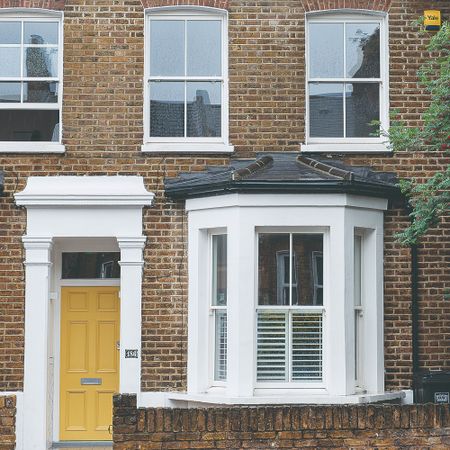 Should you ever pay above the asking price for a home?
Should you ever pay above the asking price for a home?Our money expert explains whether you should ever pay over the asking price for a home, especially if house prices fall as predicted
By Samantha Partington
-
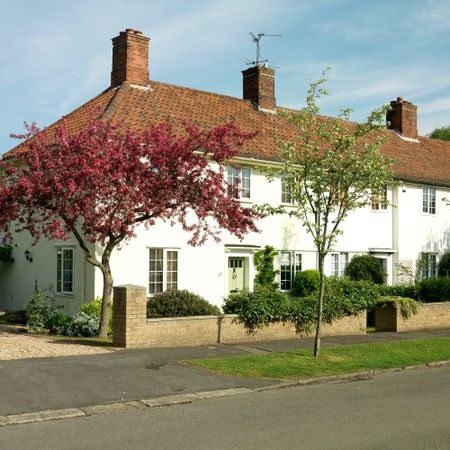 Should I fix my mortgage and how long should I fix for?
Should I fix my mortgage and how long should I fix for?We speak to the experts to find out whether you should fix your mortgage and how long for as well as the impact further interest changes could have on your decision
By Samantha Partington
-
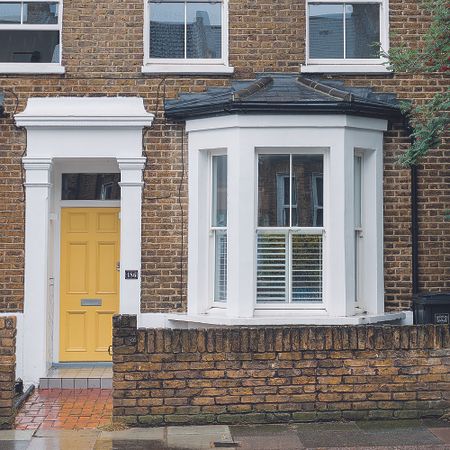 We put your mortgage questions to two leading experts, here's what they said
We put your mortgage questions to two leading experts, here's what they saidAs mortgage panic continues, we've answered the most common questions - from when mortgage rates will come down, to when you actually have to pay stamp duty
By Samantha Partington
-
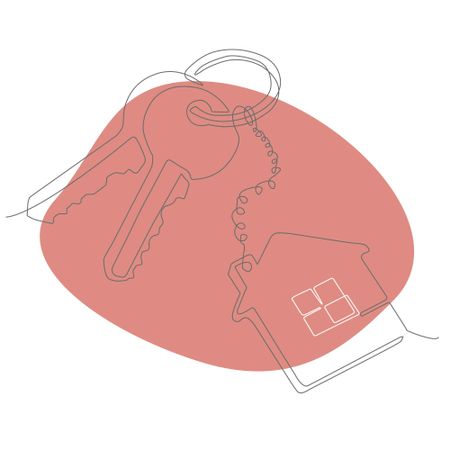 'My mortgage is set to skyrocket - what should I do?' 5 potential solutions from a money expert
'My mortgage is set to skyrocket - what should I do?' 5 potential solutions from a money expertIf you're facing higher mortgage costs, our money expert explains various courses of action you could take to ease the pressure
By Samantha Partington